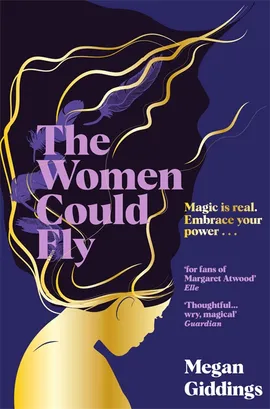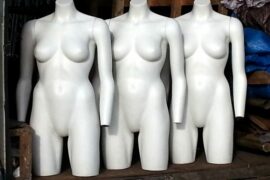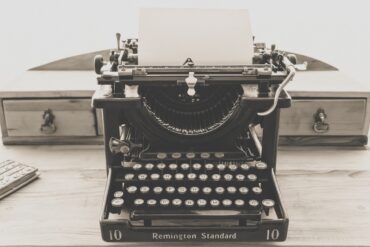The Women Could Fly is a dystopian fantasy novel by Megan Giddings, set in a society resembling Margaret Atwood’s The Handmaid’s Tale and tells the story of Josephine Thomas who is struggling to find her place in a society controlled by the government.
By Anna Savchuk
The Women Could Fly (Pan Macmillan, 2022) is a dystopian fantasy novel by Megan Giddings that submerges readers in a fictional world reminiscent of Margaret Atwood’s The Handmaid’s Tale. The narrative revolves around Josephine Thomas, who is trying to find her lifepath and true self in a society, strongly controlled by the government, where every woman is closely monitored and observed to prevent the cases of witchcraft that may distort the ›perfect‹ reality ruled by men.
Search for Identity in a Constrained World
The story starts with the mysterious disappearance of Josephine’s mother, who is considered to be a witch and is therefore disapproved by society. With this unexplainable event, the life of little Jo has become unbearable as she is now under a close and constant supervision of the State. Josephine needs to pass witchcraft tests every year and inform the government of any unusual happenstances in her life. What is more, she is obliged to get married before 30 or find an official representative, otherwise, harsher measures will be applied to control the young woman’s life. Giddings masterly combines the hurdles of finding one’s true belonging in the world, where your desires and freedoms are restricted. It is undoubtedly a struggle for Joe to embrace her true sexual orientation, since it is forbidden by the law to have same-sex relationships, or develop in her career by herself without a man by her side. The protagonist cannot freely decide what she wants to become because of the pressure and biased attitude placed on women, for example, the restrictions of choosing ›male‹ jobs or earning more money than men. By drawing parallels with current issues, particularly those relating to women rights and LGBTQA+ rights, the novel adds an enormous value to the understanding of the contemporary world.
The way the fictional world is organized is clearly metaphorical and makes readers compare the real-life issues with the ones portrayed in the novel. The patriarchal society is treating women, especially women of color, as a huge threat to the controlled and authoritarian male State. Citizens strongly believe that females with darker skin tone possess dark and evil magical skills, thus, more likely to cause hazards and harm the human beings. That is why all female citizens are strictly monitored and tested for witchcraft. Only marriage can free them from such violation by the government but instead making them the property of their husbands. Megan Giddings exploration of otherness through the lens of witchcraft hyperbolizes the marginalization and inequalities that women experience in various societies and cultures today, for example in legal terms or in the sense that their primary achievements are occasionally still viewed from the perspective of traditional maternal roles. In this way, she draws the reader’s attention to the fact that in the modern reality we still have some old-fashioned and humiliating ideologies.
Exploring Relationships, Fantasy Realms, and the Cost of Freedom

Megan Giddings
The Women Could Fly
Pan Macmillan: Hampshire, 2023
368 pages, £16,99
Giddings’ writing style is a standout feature, with an evocative tone that captures Jo’s ambivalence toward her mother’s legacy and societal expectations: »You left me alone,« I said. »Do you know how hard it was to be the only Black girl with a witch mom in high school? It almost killed me. You were the only person I had who knew what it was like to be in that town, who could tell me how to live, and you left.« The author engages with themes of love, equality, guilt, and forgiveness, presenting a nuanced exploration of the mother-daughter relationship.
The alternative reality where all the events take place is masterly built and the fantasy elements are so carefully constructed that it is hard to distinguish between magic and everyday occurrences. As a kid, Jo could not realize that she was casting spells herself while talking to toys who replied back, or summoning a deer into the attic, and readers can first feel that it is all a part of a child’s imagination. However, as later explained, there were real magic occurrences, though not dangerous, but considered as a threat. Those supernatural elements highlight why this world functions in such a way, however, with some gaps about certain facts. The author deliberately creates a modern world that preserves medieval traditions in order to show the absurdity of outdated beliefs, such as biased attitudes towards women and the LGBTQIA+ community. As a result, the inequalities of the fictional world expose the current ones, because such hyperbole by Megan Giddings draws more attention to the burning issues.
Readers are not given a precise information about how the magic was discovered, why is it so inappropriate in this society, why are measures against witches so strict and why men cannot be witchers. As the focus is on Josephine Thomas, one does not get to see the development of some of the side characters, which is slightly disappointing, as the views and opinions of those different from the protagonist could have added depth to the narrative. Not surprisingly, Josephine undergoes the major changes throughout the whole story and her views and handling of life hurdles changes dramatically. At the beginning of the novel, Jo is denying her magical abilities and even tries to follow the rules by starting a relationship with a man and making plans about marriage. Thus, she finally accepts that her true power lies in self-acceptance, understanding her sexuality and the power that she has. Fortunately, some minor holes in the plot do not interfere with the perception that the narrative creates challenging questions about the cost of personal freedom, since Josephine loses everything that she had to fully embrace her personality and not to be restricted by unfair rules.
Time for Changes
Despite some gaps in the plot and lack of some characters’ development, The Women Could Fly is a thought-provoking and revealing reading. Giddings masterly uncovers societal issues such as women rights, personal freedom, and marginalization in her fictional world though so closely similar to the real one. Even through the fantastical setting there is a strong connection to our current social landscape with the very same issues that people face. Without a doubt, readers will truly find answers to their own questions by living the experience together with the protagonist. The Women Could Fly is a social commentary that reveals the flows of the current society, promoting finding inner peace and harmony, accepting one’s true power.






